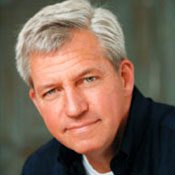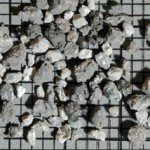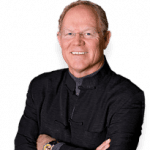Yesterday, in the light of a new book by pastor T. C. Ryan on his struggle with a pornography addiction, I reflected on the nature of sex addiction and addictions generally. The basic dynamics of addiction, I suggested, are identical to the basic dynamics of sin. We are made to rest in God and God’s provision, yet we reject God and elevate other things above Him, and then we find that we increasingly enslaved to them, increasingly incapable of overcoming them by ourselves and for ourselves. We discover that we have exchanged being for nothingness, truth for falsehood and confusion, and freedom for bondage and powerlessness.

This is philosophically expressed, but it’s not a philosophical matter. And it would be hypocritical of me, given what I’ll say later, if I did not speak of my own experiences here. It was not happenstance that I decided to teach a class on sin and addiction. I became intensely interested in the topic for a very specific reason.
I have taken pain medications more or less constantly ever since I broke my neck in 1996. Every day, I leave my house with a packet of pills in my pocket. For the last six years, I’ve been on a medication that relieves my pain without causing any euphoria or craving — but that was not always the case.
To be clear, my medications have always been prescribed and supervised by a physician. But that does not mean — does not mean at all — that I have not been addicted. One of my doctors, in fact, was very clear with me: if I put you on this medicine for a long time, you will become addicted. There’s no question about it. We will just hope to control the addiction.
As though addictions can be controlled. But what choice did I have? If I did not take the pain medications, then I was in pain constantly. Every hour of every day. Around my two fused vertebrae, I have nerve damage, bulging discs, pinched nerves, traumatic arthritis. What some people don’t appreciate about chronic pain is that the physical pain is one thing, but the psychological burden can be almost unbearable. It’s a terrible thing to stare down the barrel of the rest of your life and know that it will rifled through with agony to the end.
So I went from Vicodin and Percocet to Methadone and Oxycontin. I would be on a certain medicine for a while, my body would build a tolerance, I would need to raise the dosage, eventually the side effects would grow too significant, and we would switch to another medicine. And the most dangerous of the drugs I utilized was, without a doubt, Oxycontin.
I took Oxycontin — and usually felt a “high” — three times a day, for years. While I never ground and injected or snorted it, I learned that there were other ways to get it into your system more quickly, or ways to experience its effects more profoundly. I had a nearly endless supply of euphoria in a bottle. After a long and frustrating day, when you come home and your body is pulsating with ache, sometimes the prospect of getting that medicine into your system and drifting away into some soft bliss was all but irresistible.
It was not long before it was clear to me that I was thoroughly addicted to it. If I tried to lower the dosage, I could not stay on the wagon for long. I asked my doctor to move me to something else, but we didn’t have a better solution. It was like asking an alcoholic to drink three shots of Scotch every day, but never to take a second shot. Yeah, how likely is that to succeed? So I found myself taking more on some days than others, and as the dosage increased I withdrew from my wife (because I did not want to scare her with the reality of what I was experiencing) and accomplished less and less. It made my general exams for my doctorate extremely difficult. I would read something at breakfast and not remember what I had read by lunch. I was like the proverbial frog in the warming water, except I understood my situation, was terrified, but did not know how to escape it. At night I would read the stories of people who fell into downward spirals through Oxycontin or other opioid medicines, and would suffer panic attacks at the thought I might lose my marriage, my career, my life.
That is my addiction story. One of many, really — I am certainly addicted to achievement and the esteem of others, among other things — but this is the clearest, most dramatic addiction story in my life.
The change only came when I realized my complete failure and my one-hundred-percent absolute inability to overcome this by myself. There were two problems: I had no idea how I was going to get off the Oxycontin, and I had no idea what I was going to put in its place to control the pain. So finally, one night, barely energetic enough to weep, I cried out to God to help me. I needed a miracle, I told him. I had no idea what it would be, I had no plan, no solutions, and no strength left of my own. But I needed God to help me get off this medicine and to find me something else to take its place.
It was only then that my life began to transform. I had to re-learn how to walk in faith, how to move forward with God’s strength and not my own, which means living in constant prayer and constant dependence, frankly confessing that you have nothing to offer and yet hoping against all reason for a miracle. God is the God of the absurd, of the impossible, a God who calls things that are not as though they are.
I told my doctors the next morning that I was weaning myself off the Oxycontin, very sharply. I went from 140mg of Oxycontin to 80mg the next day, to 40mg the next day. It was horrific. One of my doctors called and told me of a program that would provide Suboxone for patients withdrawing from opioids. They required me to get the Oxycontin completely out of my system for 24 hours, so I did. By the time I went in, I was shaking violently and just trying to keep a grip on the pieces of my brain that wanted to fly in opposite directions.
To make a long story short, the Suboxone took away the withdrawal symptoms — and also took away the pain. Turns out, it’s an effective pain treatment, without the drawbacks of full opiate agonists. So I stayed on Suboxone. There are all sorts of reasons why it’s a great medicine. It has safeguards built in. I’ve never had to increase my dose, in 6-7 years. In fact, I’ve decreased it twice. I feel more pain, but I’ve never felt a high, and never regretted it for an instant.
Here are a couple things I learned along the way relevant to sex addictions as well as other kinds of addictions:
- There is no such thing as overcoming your addiction. You will be overcome by it. The question is whether you will — to use Kierkegaard’s terms — will your own downfall. You will either confront the fact that it has defeated you and you need help, choosing to see yourself in all your powerlessness and nothingness apart from God, willing the destruction of the self you have made yourself apart from God, or else you will be destroyed and lost in your pride. There is something self-destructive about addictions. Most of us who have experienced addictions know this. Some part of you is trying to destroy itself. What you can choose is whether it is your false self that is destroyed, the old man, the flesh, with all its pretensions and prides and idolatries, making way for the new self that is Christ to emerge through the grace and the power of God — or whether you will insist upon saving yourself and go, in effect, down with the ship.
- This is not to say that there are not the odd stories of people who have, it seems, overcome their addictions through will power. But this is, at best, a temporary evasive maneuver. The fundamental dynamic of sin/addiction remains, and will emerge in another form. I believe this with all my heart: there is nothing in the world to compare to the healing power of the grace of God, and there is nothing but the grace of God that can release us from our bondage to sin/addiction. The only permanent solution is the New Being, the New Creation, the New Adam, liberated and true.
- The surest way to bind yourself even more firmly in your enslavement is to keep it a secret. There is something about telling the truth to people you love that weakens the bonds of addiction. This holds for individuals as well as communities. If you want endemic sins to fester in your congregation, suppress and conceal them. If you want to address them and find forgiveness and reconciliation, bring the issues into the light. This does not mean exposing the secrets of congregants, of course. But it does mean confessing that ours is not a congregation of perfect people, that we are a hospital, and a spiritual contagion infects the whole.
Tune in tomorrow for an interview with Tullian Tchividjian, author of a book on a related topic: Glorious Ruin: How Suffering Sets You Free. It touches on similar themes: how suffering will show you your truth, if you will let it, and how the grace of God brings, beyond the cross, the liberty of the New Being, alive in the opening tomb.
 Note: This post is a part of a sponsored discussion on Ashamed No More. Our partners do not pay for reviews, for obvious reasons, but Patheos works with publishers and filmmakers who want to make a difference in order to host conversations on the themes raised in their books and films.
Note: This post is a part of a sponsored discussion on Ashamed No More. Our partners do not pay for reviews, for obvious reasons, but Patheos works with publishers and filmmakers who want to make a difference in order to host conversations on the themes raised in their books and films.
















